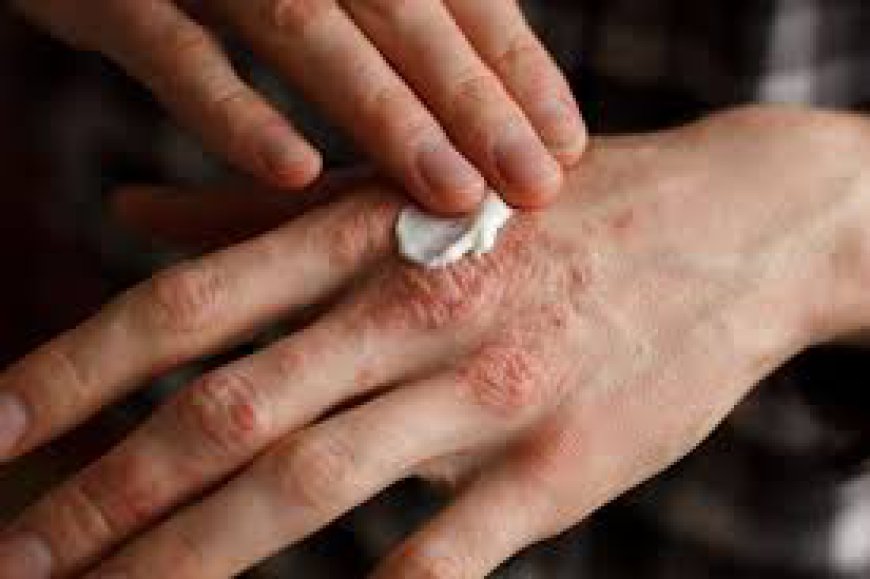Top Psoriasis Treatment Strategies Available in Riyadh
Red, scaly spots on the skin are the hallmark of psoriasis, a persistent skin illness that can be emotionally and physically taxing. A combination of topical therapies, prescription drugs, and lifestyle modifications are frequently used to manage psoriasis.

Psoriasis is a chronic skin condition that can significantly impact an individual’s quality of life. With its characteristic red, scaly patches, psoriasis can cause discomfort and self-consciousness. Fortunately, advancements in treatment options offer hope for effective management. This blog will explore various psoriasis treatment in Riyadh strategies, helping you find the best approach to manage this condition.
Understanding Psoriasis
What is Psoriasis?
Psoriasis is an autoimmune disorder that accelerates the growth cycle of skin cells. Instead of shedding dead cells naturally, the cells build up and form thick, scaly patches. This condition often manifests as red patches covered with silvery scales, primarily on the scalp, elbows, knees, and lower back.

Causes and Triggers
While the exact cause of psoriasis remains unknown, several factors can trigger or worsen the condition. These include genetic predisposition, environmental factors, stress, certain medications, and infections. Identifying and managing these triggers is crucial for effective treatment.
Traditional Treatment Options
Topical Treatments
Topical treatments are often the first line of defense against psoriasis. These include:
- Corticosteroids: These anti-inflammatory medications are commonly prescribed to reduce redness and swelling.
- Vitamin D Analogues: These help slow down the growth of skin cells.
- Coal Tar: Used to reduce inflammation and scaling.
Phototherapy
Phototherapy involves exposing the skin to ultraviolet light under medical supervision. This method can slow down skin cell growth and reduce symptoms. Various types of phototherapy are available, including:
- UVB Phototherapy: Effective for many patients, this treatment involves exposing the skin to UVB light.
- PUVA Therapy: Combines UVA light with a photosensitizing medication to enhance the effectiveness.
Advanced Treatment Options
Systemic Medications
For more severe cases of psoriasis, systemic medications may be necessary. These are taken orally or by injection and work throughout the body. Common options include:
- Methotrexate: Reduces the production of skin cells and suppresses inflammation.
- Cyclosporine: Suppresses the immune system to prevent skin cell overgrowth.
- Biologics: These are newer medications that target specific parts of the immune system involved in psoriasis.
Emerging Therapies
Recent advancements in psoriasis treatment have introduced new options:
- Janus Kinase (JAK) Inhibitors: These oral medications interfere with the signaling pathways involved in inflammation.
- Biosimilars: Similar to biologics, these medications offer similar benefits but at potentially lower costs.
Integrative and Complementary Approaches
Lifestyle Modifications
Incorporating healthy lifestyle changes can significantly impact the management of psoriasis:
- Diet: Adopting an anti-inflammatory diet can help reduce flare-ups. Foods rich in omega-3 fatty acids, antioxidants, and fiber are beneficial.
- Stress Management: Techniques such as yoga, meditation, and regular exercise can help manage stress, which may trigger psoriasis.
Natural Remedies
Some individuals find relief using natural remedies:
- Aloe Vera: Known for its soothing properties, aloe vera can help reduce redness and scaling.
- Oatmeal Baths: These can alleviate itching and discomfort.
- Coconut Oil: Applying coconut oil can help moisturize the skin and reduce dryness.
Choosing the Right Treatment
Personalized Treatment Plans
A key aspect of successful psoriasis treatment in Riyadh is tailoring the approach to the individual's specific needs. Factors to consider include the severity of the condition, overall health, and response to previous treatments. Collaborating with a healthcare professional to develop a personalized treatment plan is crucial.
Monitoring and Adjusting Treatments
Psoriasis treatment is not static; it requires ongoing monitoring and adjustments. Regular follow-ups with a healthcare provider ensure that the chosen treatment remains effective and allows for modifications as needed.
Conclusion
Managing psoriasis effectively involves a combination of traditional, advanced, and integrative treatment options. By exploring the various psoriasis treatment in Riyadh strategies and working closely with a healthcare professional, individuals can achieve better control over their condition and improve their quality of life. Whether opting for topical treatments, advanced therapies, or complementary approaches, the goal is to find a regimen that works best for you

 maria3211
maria3211